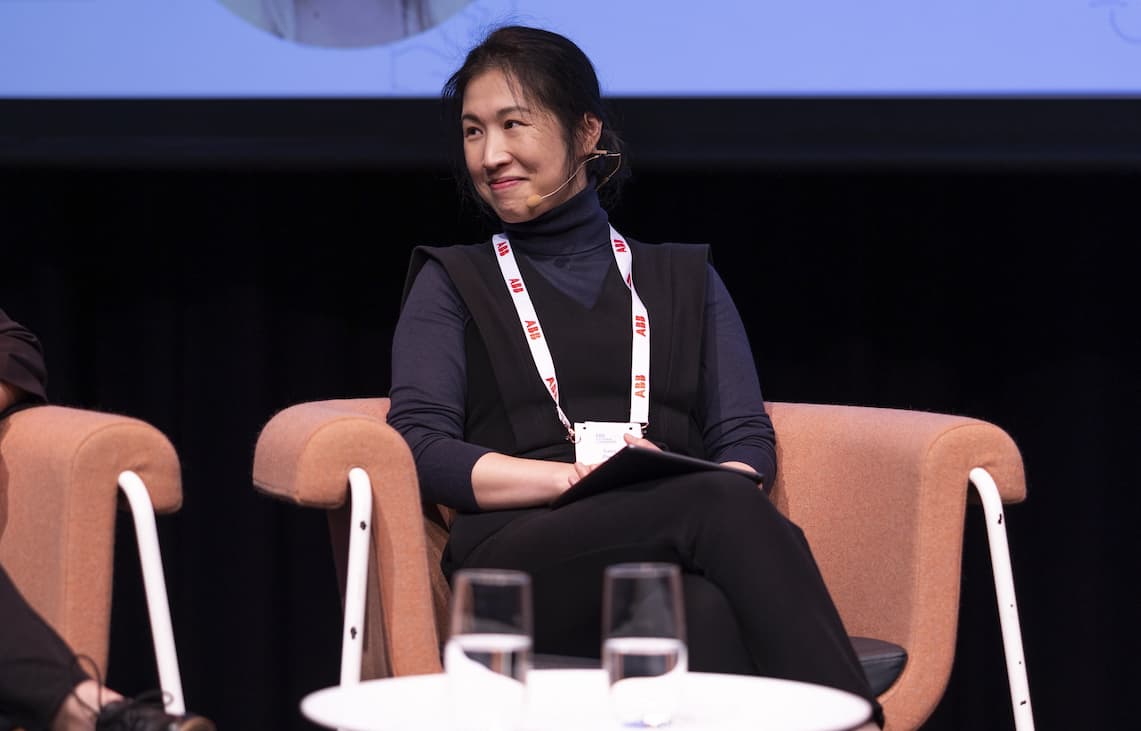AIRAH CEO Sami Zheng, Affil.AIRAH, participated in a panel discussion at the Energy Efficiency Council’s national conference on May 16. She recaps the major takeaways from the event for HVAC&R News.
It was a huge honour to be asked to participate in the “Heavy hitters: heat pumps and residential decarbonisation” panel discussion at the Energy Efficiency National Conference in Sydney yesterday. On behalf of AIRAH, I’d like to thank the EEC for the invitation.
I was humbled to share the stage with Deepthi Worthing, Affil.AIRAH, Douglas McCloskey, Alan Pears, and Rachael Wilkinson, who chaired the event. Their knowledge and passion blows me away; I learnt so much from them, and I’m glad I was able to contribute to the discussion.
Over to the experts
The diversity of the panel allowed us to approach the issue from all different angles. Alan Pears gave us a scientific and technical perspective on the issue, focusing on the importance of the transition and highlighting areas such as efficiency and maintenance. I admire his remarkable knack for explaining complex scientific issues in a way that everyone can understand, regardless of their prior knowledge.
Deepthi Worthing’s presentation explored the regulatory issues around the transition, including how to move away from high-GWP refrigerants to natural or climate-friendly alternatives. Deepthi is an AIRAH member with extensive experience working in government and regulatory fields, and this showed in her professional and comprehensive presentation.
Doug McCloskey then approached the issue from a policy and consumer rights perspective. How can we ensure that the transition to heat pumps is equitable, fair, accessible, and leaves no one behind? When you spend every day focusing on what’s important to industry, it’s easy to forget about the bigger picture; Doug’s presentation was an important reminder of the human side of the energy transition.

AIRAH’s perspective
During the event, I spoke about the skills shortage currently affecting not just HVAC&R, but trades of all varieties in Australia. To address this gap, we need to increase the profile of the HVAC&R industry in broader society. After all, if people don’t know about the industry and its importance, how can we expect them to want to participate in it?
Perhaps even more important than attracting and training new talent is investing in the talent we already have. I’m in awe of the people who work in this field; their experience, professionalism, vision, and problem-solving ability is incredible.
We need to invest in professional development and technology to give our people the tools they need to perform at their best. We need to ensure that HVAC&R remains attractive not just in terms of salary, but in terms of working conditions, safety, and job satisfaction. And we need to give them the recognition they deserve for their hard work.
People power
The message coming from this event is clear: to change for the better, it’s not just the technologies that matter, it’s the people. The way we think and how we work together will drive the transition to an electrified, carbon-free economy.
Yesterday’s panel focused specifically on how we can do this to enable the wider adoption of heat pump technology. Success in this area – and more broadly – depends on establishing an efficient and effective ecosystem.
The industry must engage with businesses and investors, paving the way forward. We must collaborate, support one another, and strategically assign roles to foster the cooperative environment essential for achieving our net zero targets.
To my mind, this aligns perfectly with AIRAH’s work. The Institute is built on the back of our members, who work tirelessly not just in their day jobs, but also to promote and improve the industry through outlets like AIRAH’s Special Technical Groups. They share their expertise and wisdom not for commercial gain, but to elevate the industry and improve people’s lives.
In February this year, AIRAH adopted a new slogan: HVAC&R for a better world. When I see the work that our members – and others both within the industry and with organisations like the EEC – are doing, I feel that we really are working together to make a difference.
Despite the complexity of this journey, the mission is possible. AIRAH will act as a vital conduit, partnering with businesses, engineers, tradespeople, government, and the education sector to contribute in every possible way.



Leave a Reply